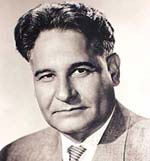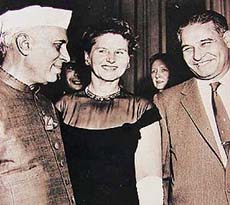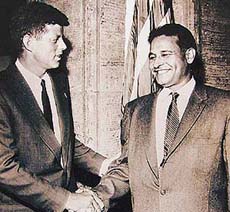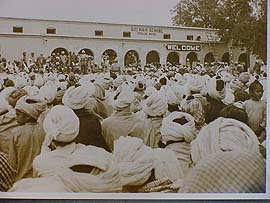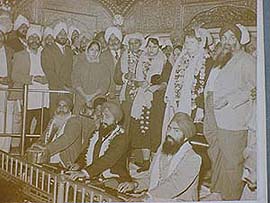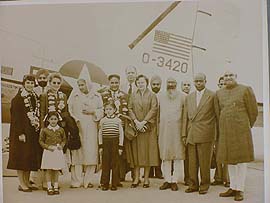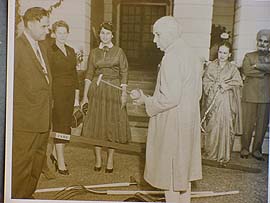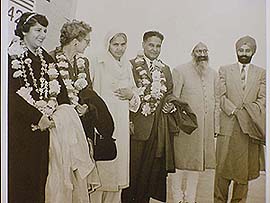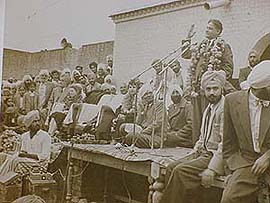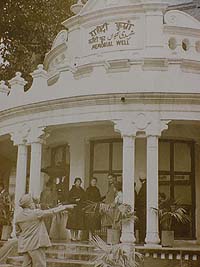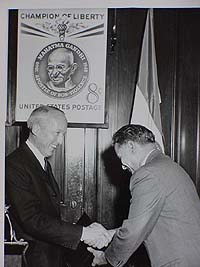Vikram singh
SPNer
- Feb 24, 2005
- 454
- 412
WASHINGTON -- What does it mean when the two best-known Indian-American politicians in American politics are converts to Christianity?
In South Carolina, Nikki Haley won the Republican nomination for governor despite a whisper campaign that criticized her name and religion. Along with rumors of alleged sexual misconduct, many questioned the validity of Haley's Christian faith.
Some, including Republican state Sen. Jake Knotts, called her Christian conversion into question. Born Nimrata Nikki Randhawa, Haley grew up as a Sikh in Bamberg, S.C., and converted to Methodism. She occasionally attends Sikh services with her extended family, which has raised eyebrows in some circles.

U.S. Rep. Bobby Jindal, a Catholic Republican from Louisiana, in a 2003 file photo. Jindal was elected governor of Louisiana Oct. 20, 2007, becoming the first Indian-American to lead a U.S. state. (CNS/Reuters )
But in a country that has demonstrated that religion matters when it comes to politics, the issue remains: does it remain difficult for Hindus, Jains and Sikhs to be voted into high office?
Both Haley and Louisiana Gov. Piyush "Bobby" Jindal, who became the nation's first Indian-American governor in 2007, are Republicans and converts to Christianity. Both also have faced questions about their religion.
Haley has a special section of her campaign website devoted to dispelling rumors and to setting "the record straight." On the site, Haley affirms her Christianity, saying "being a Christian is not about words, but about living for Christ every day."
Jindal left his Hindu faith of childhood and converted to Catholicism as a teenager. Like Haley, Jindal publicly discussed his conversion, even writing a piece in the national Catholic magazine America. "The motivation behind my conversion," he wrote in 1993, "was my belief in one, objectively true faith."
"I was comfortable in my Hindu faith and enjoyed an active prayer life; I only gradually felt a void and stubbornly resisted God's call from within the church," he added.
The extra attention carries both positive and negative implications for members of minority faiths, said Suhag Shukla, managing director and legal counsel for the Hindu American Foundation.
"I think it sends a mixed sense of hope to young people in the Indian-American community that while we may have, as a society, gotten somewhat over the race barrier, the religion barrier is still there," she said.
At least seven other Indian-Americans are running for Congress or statewide office this year, many of whom openly embrace Sikhism, Hinduism or other Indian religions.
Democrat Reshma Saujani, candidate for Congress from New York's Manhattan-based 14th district, identifies herself "first and foremost" as a "daughter of political refugees" of Indian descent. She is a practicing Hindu who says her faith has not caused friction in her campaign.
"I think that there might be more pressure ... where there might not be as much diversity in religious faith," she said. "But in New York, there definitely is (religious diversity)."
Where a candidate is running can determine how much scrutiny a candidate's faith will attract, Shukla said. A Hindu running for office in New York is one thing; a Sikh-turned-Methodist in the Bible Belt is another.
"We still see this type of discrimination in other places, and it plays out in some elections," she said. "Again, I think it would have to depend on geography," she added.
Indeed, some candidates are reluctant to reveal specifics about their faith.
Ravi Sangisetty, running as a Democrat for Louisiana's 3rd Congressional District south of New Orleans, details his Catholic school education and membership in the Catholic Church on his campaign website. But when asked whether Sangisetty had converted, a campaign spokeswoman responded, "Like I said, he's Catholic."
The campaigns of congressional candidates Raj Goyle, D-Kan., and Surya Yalamanchili, D-Ohio, and Kamala Harris, a Republican candidate for California attorney general, did not return phone calls and e-mails.
While religion and ethnicity pique interest in the national media, with some viewing Indian ethnicity as a potential handicap, Manan Trivedi, Democratic congressional candidate from Pennsylvania, believes "the American electorate is smarter than that."
An Indian-American himself, Trivedi hasn't faced questions about his Hindu faith. A spokesman for Trivedi's campaign said "people care much more about jobs and what their candidates are going to do."
"Issues are much more important," he said.
Hansdeep Singh, senior staff attorney for the New York-based group United Sikhs, remains confident that members of minority faiths can succeed in politics despite the extra scrutiny that Haley has received.
"I think that the more and more we see minority groups represented in politics," the easier it will become to gain acceptance for their culture, he said.
"I think most Americans are starting to move beyond (religious prejudice). There might be a minority of the population that will find it hard to overcome those prejudices ... but those prejudices will eventually be eradicated."
Must Sikhs, Hindus convert to get elected? | National Catholic Reporter
In South Carolina, Nikki Haley won the Republican nomination for governor despite a whisper campaign that criticized her name and religion. Along with rumors of alleged sexual misconduct, many questioned the validity of Haley's Christian faith.
Some, including Republican state Sen. Jake Knotts, called her Christian conversion into question. Born Nimrata Nikki Randhawa, Haley grew up as a Sikh in Bamberg, S.C., and converted to Methodism. She occasionally attends Sikh services with her extended family, which has raised eyebrows in some circles.

U.S. Rep. Bobby Jindal, a Catholic Republican from Louisiana, in a 2003 file photo. Jindal was elected governor of Louisiana Oct. 20, 2007, becoming the first Indian-American to lead a U.S. state. (CNS/Reuters )
But in a country that has demonstrated that religion matters when it comes to politics, the issue remains: does it remain difficult for Hindus, Jains and Sikhs to be voted into high office?
Both Haley and Louisiana Gov. Piyush "Bobby" Jindal, who became the nation's first Indian-American governor in 2007, are Republicans and converts to Christianity. Both also have faced questions about their religion.
Haley has a special section of her campaign website devoted to dispelling rumors and to setting "the record straight." On the site, Haley affirms her Christianity, saying "being a Christian is not about words, but about living for Christ every day."
Jindal left his Hindu faith of childhood and converted to Catholicism as a teenager. Like Haley, Jindal publicly discussed his conversion, even writing a piece in the national Catholic magazine America. "The motivation behind my conversion," he wrote in 1993, "was my belief in one, objectively true faith."
"I was comfortable in my Hindu faith and enjoyed an active prayer life; I only gradually felt a void and stubbornly resisted God's call from within the church," he added.
The extra attention carries both positive and negative implications for members of minority faiths, said Suhag Shukla, managing director and legal counsel for the Hindu American Foundation.
"I think it sends a mixed sense of hope to young people in the Indian-American community that while we may have, as a society, gotten somewhat over the race barrier, the religion barrier is still there," she said.
At least seven other Indian-Americans are running for Congress or statewide office this year, many of whom openly embrace Sikhism, Hinduism or other Indian religions.
Democrat Reshma Saujani, candidate for Congress from New York's Manhattan-based 14th district, identifies herself "first and foremost" as a "daughter of political refugees" of Indian descent. She is a practicing Hindu who says her faith has not caused friction in her campaign.
"I think that there might be more pressure ... where there might not be as much diversity in religious faith," she said. "But in New York, there definitely is (religious diversity)."
Where a candidate is running can determine how much scrutiny a candidate's faith will attract, Shukla said. A Hindu running for office in New York is one thing; a Sikh-turned-Methodist in the Bible Belt is another.
"We still see this type of discrimination in other places, and it plays out in some elections," she said. "Again, I think it would have to depend on geography," she added.
Indeed, some candidates are reluctant to reveal specifics about their faith.
Ravi Sangisetty, running as a Democrat for Louisiana's 3rd Congressional District south of New Orleans, details his Catholic school education and membership in the Catholic Church on his campaign website. But when asked whether Sangisetty had converted, a campaign spokeswoman responded, "Like I said, he's Catholic."
The campaigns of congressional candidates Raj Goyle, D-Kan., and Surya Yalamanchili, D-Ohio, and Kamala Harris, a Republican candidate for California attorney general, did not return phone calls and e-mails.
While religion and ethnicity pique interest in the national media, with some viewing Indian ethnicity as a potential handicap, Manan Trivedi, Democratic congressional candidate from Pennsylvania, believes "the American electorate is smarter than that."
An Indian-American himself, Trivedi hasn't faced questions about his Hindu faith. A spokesman for Trivedi's campaign said "people care much more about jobs and what their candidates are going to do."
"Issues are much more important," he said.
Hansdeep Singh, senior staff attorney for the New York-based group United Sikhs, remains confident that members of minority faiths can succeed in politics despite the extra scrutiny that Haley has received.
"I think that the more and more we see minority groups represented in politics," the easier it will become to gain acceptance for their culture, he said.
"I think most Americans are starting to move beyond (religious prejudice). There might be a minority of the population that will find it hard to overcome those prejudices ... but those prejudices will eventually be eradicated."
Must Sikhs, Hindus convert to get elected? | National Catholic Reporter

